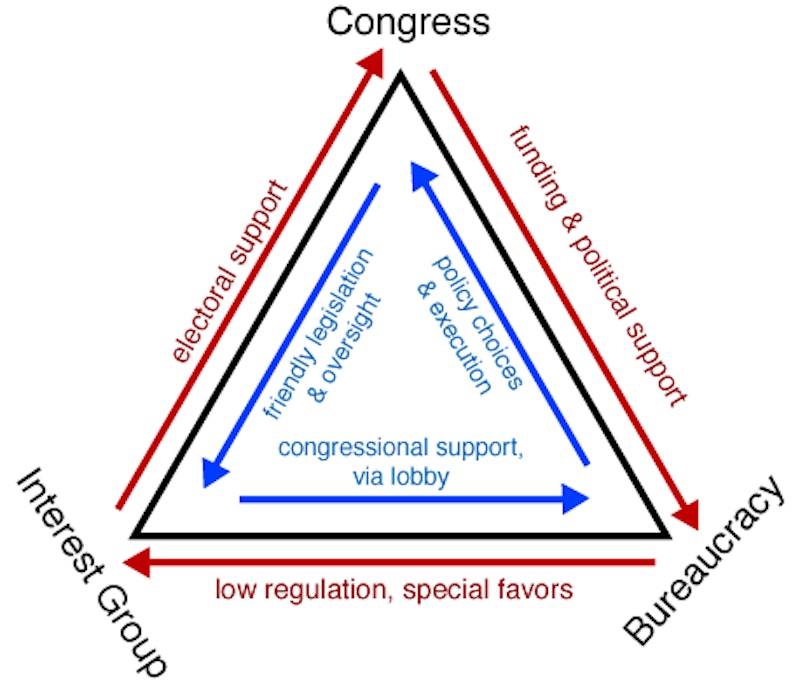Study Notes
Iron Triangles
- Level:
- A-Level
- Board:
- AQA, Edexcel, OCR, IB
Last updated 22 Mar 2021
An iron triangle is the term used to describe a relationship that develops between congressional committees, the federal bureaucracy and interest groups during the policy creation process.
The relationship between these three actors occurs naturally over time down to close proximity in which all of them work together. They are all seeking to maximise their gain during the policy process, and iron triangles help them to do this.

Components of an Iron Triangle
Congressional Committees:
- Gives Funding and Political Support to the Federal Bureaucracy
- Gives friendly legislation and oversight to Interest Groups
Federal Bureaucracy
- Gives congressional committees the policy choices and executes that policy
- Delivers low regulation and special favours to the interest group
Interest Groups
- Gives electoral support in the form of PACs and donations to Congressional committee members
- Delivers congressional support for the federal bureaucracy through lobbying Congress.
Iron triangles get their name because they are incredibly hard to remove once they are set in, all three components need each other in order to survive. It is not in the interests of any component to break the triangle.
To provide a theoretical example:
The Defence committee in the House of Representatives will provide political support and appropriations to the US Department of Defence, who in return will execute the policy choices of the committee. The Defence Department will then deliver low regulation to the interest groups who are delivering congressional support through the Defence committee. Finally the interest group, which could be a defence contractor, will give electoral support to the committee members, and expect the friendly legislation and low oversight to come their way.
You might also like
Functional representation
Study Notes
Third Party
Study Notes
Chief of Staff
Study Notes
States' Rights
Study Notes
Presidential Debates
Study Notes
Transnational and Multinational Corporations
Study Notes
Roe v Wade 1973
Study Notes
Edward Snowden
Study Notes